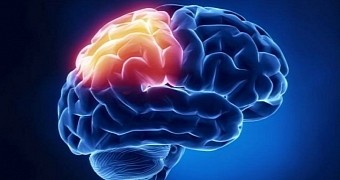Having carried out a series of experiments on laboratory mice, researchers found that, following a serious head injury, the brain risks being left crippled not because of the blow per se, but because the immune system gets busy killing neurons.
The good news is that, at least in the case of mice, evidence at hand indicates that brain damage resulting from head injuries can be limited simply by putting the immune system on a tight leash, the scientists behind this investigation write in the journal Acta Neuropathologica Communications.
The mice experiments
As part of this research project, specialists first split a total of 32 laboratory mice into several groups. Of the rodents that they experimented on, some had previously been engineered to lack a naturally-occurring compound dubbed CD74.
Seeing how CD74 helps activate T cells, i.e. immune cells that attack infected or damaged cells in the body, it was believed that removing most of it from the animals' body would help limit the brain damage resulting from head injury.
Apart from engineering mice that were CD74 deficient, scientists administered some of the rodents a special treatment dubbed CAP. This treatment was especially designed to keep the mice's T cells from being activated following head trauma, EurekAlert explains.
Sure enough, it appears that, of the mice that these researchers experimented on, the ones that were allowed to hang on to a fully-functional immune system displayed more severe brain lesions following trauma than the ones whose T cells were deactivated one way or another.
How the immune system makes head injuries worse
In their paper in the journal Acta Neuropatholoica Communications, the specialists behind this series of experiments argue that a fully-functional immune system can make head injuries worse because, following such accidents, immune cells get to come into contact with neurons.
This is because the trauma associated with head injuries causes the blood-brain barrier to break, the scientists go on to explain. Apparently, immune cells don't want to be accused of discrimination, and so they attack brain cells in an attempt to prove their worth.
The importance of this study
Provided that these findings concerning the behavior of the immune system in the aftermath of head injuries also hold true in the case of humans, scientists say that toying with immune cells could prove quite an effective way to reduce, maybe even prevent brain damage from accidents.
More precisely, it is expected that the outcome of this series of experiments could one day benefit folks who play fairly rough sports like rugby, boxing and American football, and ordinary people who every once in a while end up bumping their heads through no fault of their own.
“The results from the current study provide a foundation for targeting the switch between innate and adaptive immunity for the treatment of TBI [traumatic brain injury],” the researchers write in their paper in the journal Acta Neuropatholoica Communications.

 14 DAY TRIAL //
14 DAY TRIAL //